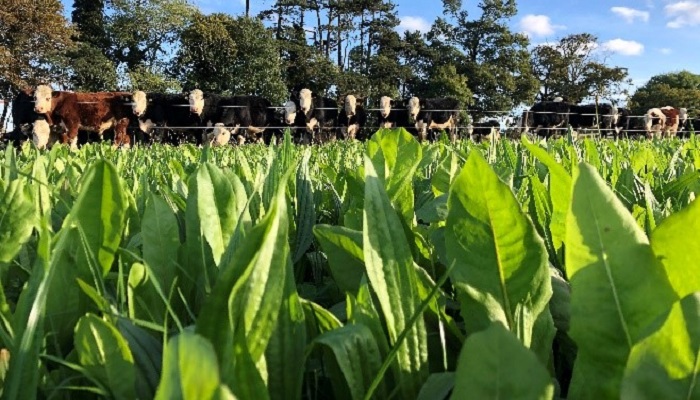05 April 2023
Watch: The multiple benefits of multispecies swards

High nitrogen fertiliser prices, combined with a drive to farm in a more environmentally sustainable way, has seen the interest in multispecies swards peak at farm level.
These swards, as discussed by Dr. Shona Baker at the recent Farming for Soil Health event in Teagasc Johnstown Castle, offer a range of benefits, including: improved soil health; enhanced biodiversity; and increased livestock productivity.
Multispecies swards – containing three plant functional groups (grasses, legumes and forage herbs) – have been found to be beneficial in maintaining high forage yields using significantly less nitrogen fertiliser compared to perennial ryegrass monocultures. This increased productivity comes from functional group diversity which peaks at 4-8 species.
However, they do carry a range of additional benefits. These swards have been shown to support greater insect diversity than grass-clover swards and may reduce greenhouse gas emissions. It has also been found that multispecies swards improve drought tolerance, soil structure, and can increase soil porosity compared to grass monocultures.
In the brief video below, Dr. Shona Baker, Postdoctoral Researcher on the multi4more project, discusses some of these benefits.
For more videos from the Farming for Soil Health event, click here.
